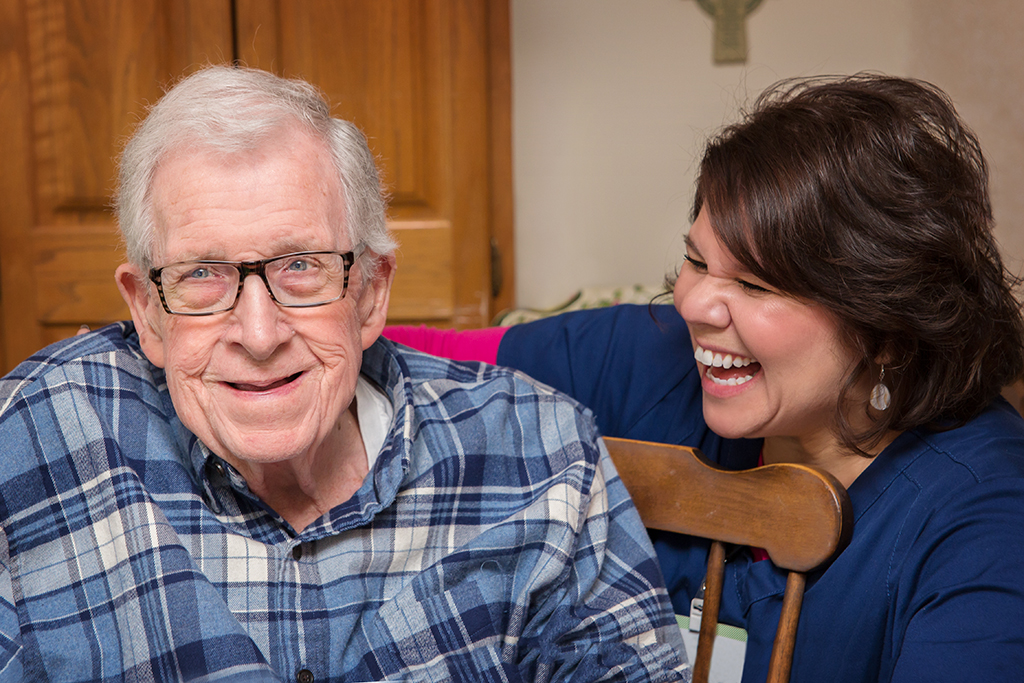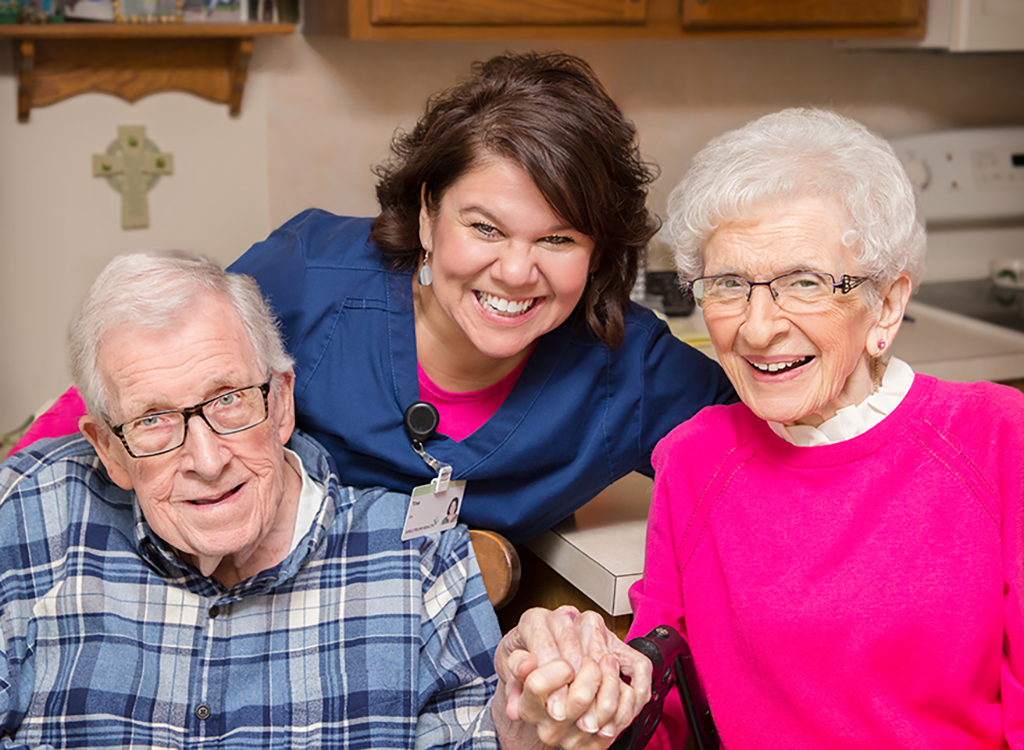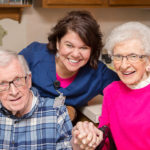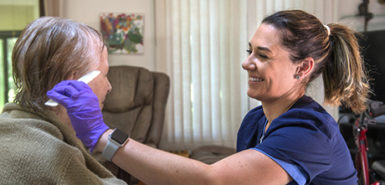When you’re 93 years old and you’ve battled through a colostomy, an ileostomy, adhesions, obstructions and a perforated bowel, you develop great “gut” instincts about the types of relationships that can help you win the war with your digestive system.
John Hickey knows this quite well.
He has always credited his many successes in life to a strong foundation in faith and to the “loving care” from his wife of 67 years, Shirley.
More recently, this World War II veteran has developed an expanded circle of important relationships that have grown apace, in quantity and in quality, with his health needs.
At times, he has relied on the people with surgical expertise at Spectrum Health Blodgett Hospital. Doctors, nurses and plenty of others have guided his journey throughout Spectrum Health.
But to recuperate, he has developed yet another relationship.
Nowadays, he relies heavily on the restorative care provided by employees at the Visiting Nurse Association of Spectrum Health At Home.
“Fantastic care,” said Hickey, a U.S. Marine veteran who worked 40 years at General Motors before retiring.
Home care is truly about building trusted, healing relationships.
Hickey’s home in Grand Rapids, Michigan, exudes family and friendship. From the moment you cross the threshold into the Hickey home, you feel like a longtime friend and important guest.
The walls are decorated with photos featuring their proudest accomplishment: family.
Shirley won’t let visitors leave without the tour, which includes a close look at her grandchildren’s beautiful pictures and possibly one of her most cherished items, a framed certificate of her first Holy Communion.
Like most patients, John has found his own home the ideal venue for healing.
Tina Iacovoni, a registered nurse at the Visiting Nurse Association, began her relationship with Hickey as one of his home care nurses in 2013, when Blodgett Hospital referred him there.
It marked the start not only of his health care journey, but a rewarding friendship, too.
Hickey has come to consider Iacovoni his “spark of life.”
“She is so friendly, thoughtful and considerate,” he said. “We never worried with the visiting nurses. It was like we have always known them.”
Hickey’s journey hasn’t been without its challenges.
“John had been through multiple ostomy surgeries, having it moved from one side to the other,” Iacovoni said. “His high-output ileostomy caused him to dehydrate and make frequent trips to the hospital.”
In an ambulance cab, he also made trips to a private company that specialized in IV infusions. The trips proved draining and he ultimately came to dread what he called “costly and cold” journeys.
Eventually, doctors inserted into Hickey’s chest a central line that can be used to infuse fluids into his system. A nurse from the Visiting Nurse Association has taught him to use this line to connect himself to a pump, which he can then use to infuse fluids three to four times a week, about seven hours each time.
This keeps him from getting dehydrated.
Hickey actually had three different types of infusion lines at various times before nurses and specialists opted for this system, which has proven most effective for self-management and for reducing the risk of infection.
While nurses from the Visiting Nurse Association provide sterile dressings weekly, Hickey is able to skillfully manage the pump on his own.
“He does such a great job—it’s like he invented it,” Iacovoni said.
With help from his network of supporters, Hickey has truly persevered.
“It has been a real journey, but I feel like we have persevered due to him being able to manage this at home,” Iacovoni said.




 /a>
/a>
 /a>
/a>
 /a>
/a>
I have had the pleasure and honor of working with Tina, RN as a colleague and friend. Her passion, dedication, and genuine desire to provide outstanding care to her patients shines through her positive and upbeat personality!! She is a true example of an amazing nurse!!
I too have had the pleasure of working with Tina. She was one of the visiting nursesfor my husband Bill. I liked her friendly voice, humor and respect she showed my husband. Thank you.
Thank you for your wonderful comment, and for being a Health Beat reader, Donna! 🙂